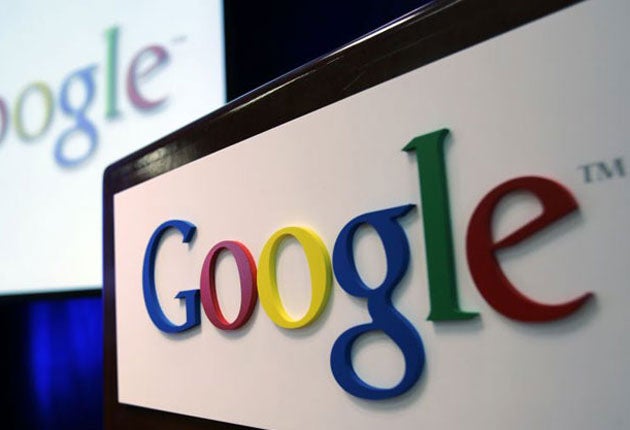Can Google really reboot the way we use personal computers?
Chrome OS scores highly for computer novices but fails for those who demand a little more from their computers

If you want to revolutionise computing, you have to be bold. When Apple unveiled the original Bondi-blue iMac back in 1998, there were howls of protest at its decision not to include a 3.5-inch floppy-disk drive. "How are we going to cope?" people whined. "What on earth are Apple playing at?"
Apple, of course, was right, forging ahead to a bright new future. But next week Google will make a far bolder move in launching its first "Chromebooks", made by Samsung and Acer.
The machines, which were made available for pre-order yesterday, break all conventions. There's no desktop, just an internet browser window, and their functionality is almost entirely dependent on internet access. There is no software to install, just applications running across the internet – and there's nowhere to store your files.
Well, technically there is – but it's not something Google is crowing about. Because these are machines for the internet age, operating almost entirely in the cloud. Google's operating system, Chrome OS, doesn't just bring cosmetic change; it's beating an entirely new path.
Both the Samsung and Acer Chromebooks are rare in the wild prior to their UK launch, but Google has been touting an unbranded preview machine to demonstrate the functionality of the Chrome OS. Its advantages and its drawbacks both centre around its simplicity. If, like me, you're one of the 160 million people who already use the Google Chrome browser, the look and feel of the display will be familiar. Indeed, once you've signed into your Google account, it's as if you were browsing on your other computer, with all your bookmarks, passwords and extensions intact.
This underlines the benign nature of these computers – they're effectively just shells; sign in to Google using someone else's Chromebook and it'll feel just like yours. All your work is done in the browser window; apps are available from Google's Web Store (many of them for free) for word processing, diary keeping, emailing, photo editing and much else besides, with the obligatory default time-wasting game, a path-building puzzle called Entanglement. The machine feels quick, responsive, relatively immune to viruses, and the battery lasts for a full working day (or a transatlantic flight, depending on your jet-set credentials.)
But while Chrome OS scores highly for computing novices, it fails for those who demand a little more. Photo editing is a case in point: apps require you to upload your images, work on them in the browser, then download them again when you're done – something that seasoned Photoshoppers will find frustrating. You can't connect a printer to the machine directly; you have to use Google's Cloud Print service, which sends print jobs to a machine you've nominated that does happen to have a printer connected.
The main worry, of course, is that without a connection to the internet or a mobile-phone network (if you fork out for the 3G option), you're left with a brick of a machine, with your documents and emails inaccessible.
There are privacy issues too surrounding cloud computing. Google will be vaguely (very vaguely) aware of the kinds of things you're up to – but, on the other hand, it will probably do a better job of looking after your files than you would, so it's swings and roundabouts. The main factor dissuading us from going Chrome right now, however, is probably the cost. Samsung's machine is comparable in price to the iPad, and one wonders why you'd opt for an internet café experience on a laptop over a sleek, touch'n'swipe tablet.
Chrome OS has been hailed as the advent of "cheap, easily accessible computing" – and yes, it does feel like a genuinely new approach, right down to the dedicated "search" button replacing that useless old caps lock key. All we need now is for a manufacturer to sort out the "cheap" bit.
BlackBerry's tablet plays catch-up
If Google's entry to the laptop market represents something new, the shelves of gadget stores are already groaning with tablets. Which makes BlackBerry's arrival to the party rather late.
The Canadian makers of the ubiquitous mobile phones favoured by business people and youths taking advantage of its free chat service are catching up with two iPads, several Samsung Galaxy Tabs and impressive pieces of kit including the Motorola Xoom.
Its offering, the Playbook, goes on sale today from £399, the same price as the rival device from Apple. At 5.1" by 7.6" it sits comfortably in one hand, and is more portable than the iPad.
The casing is slick and although the screen's resolution doesn't quite match up to the iPad, the difference in quality is not noticeable. The Playbook prides itself on the browsing speed it offers, and the claim to bring the "true Web" to tablets is no idle boast. The multitasking feature is attractive and operating the various menus and functions quickly becomes intuitive. The Playbook is aimed at its existing business and consumer customers and the strength of an inbuilt audience is also its Achilles' heel. While parent Research in Motion has promised a family of devices, its first foray into the tablet market is massively hampered if the user does not have a BlackBerry smartphone to attach it to.
Nick Clark
Subscribe to Independent Premium to bookmark this article
Want to bookmark your favourite articles and stories to read or reference later? Start your Independent Premium subscription today.

Join our commenting forum
Join thought-provoking conversations, follow other Independent readers and see their replies